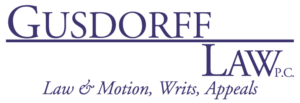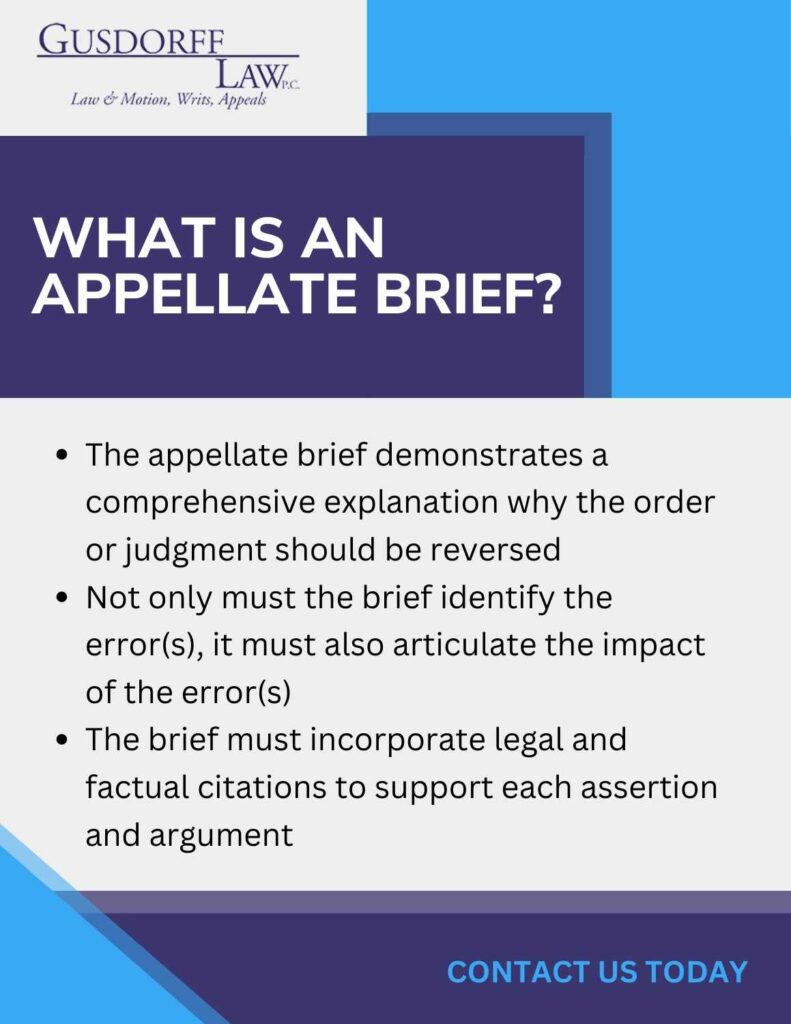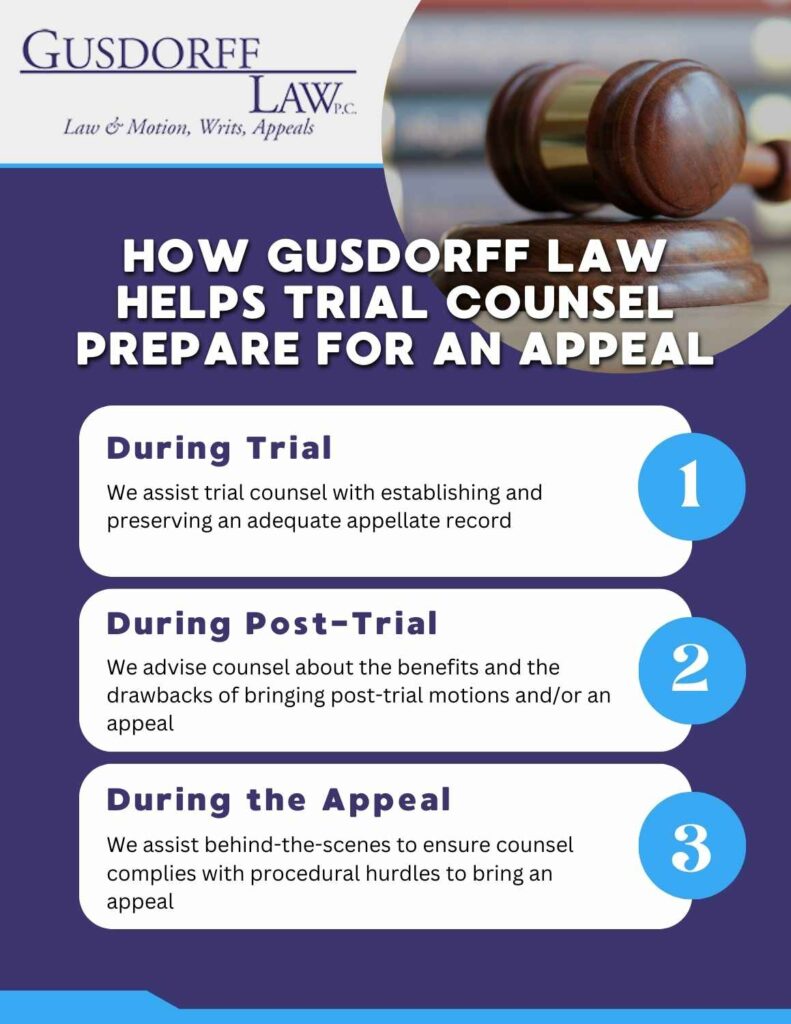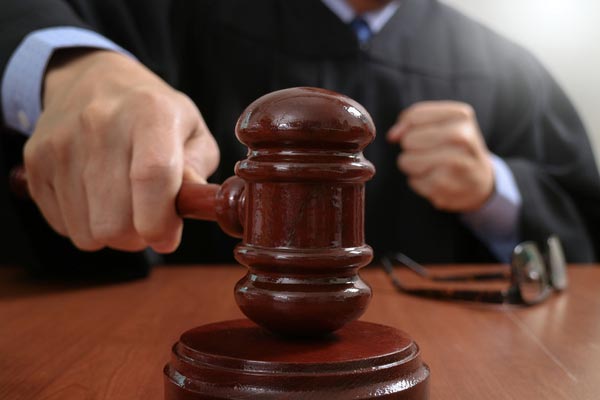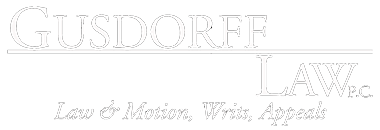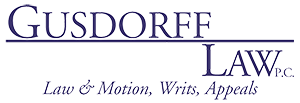Following the Correct Procedure of Appeals
There are certain principles of appellate procedure in California. The recent rejection of David Kilrain’s appeal in case no. 22CV01222 emphasizes the importance of following procedural rules and the presumption that trial court judgments are correct.
1. Presumption of Correctness
In appellate procedure, there is an embedded belief that decisions made by trial courts are assumed to be accurate. This means that when a judgment or order from a trial court is brought to an appellate court for review, the starting point is to view that decision as being correct. This foundational principle places the responsibility on the person appealing the decision to demonstrate and prove the error made by the trial court. If they fail to do this adequately, the appellate court will likely uphold the original decision.
Reference:
Jameson v. Desta (2018) 5 Cal.5th 594, 608-609
2. Burden on the Appellant
The onus is on the appellant (the party appealing the decision) to meticulously detail where the trial court went wrong. This isn’t a mere task of pointing out an alleged mistake. The appellant needs to provide an exhaustive argument elucidating the error, supported by relevant legal citations, authorities, and specific portions of the trial record. Just asserting that an error exists without this layered and supportive information is insufficient. The appellate court relies on this detailed breakdown to understand and evaluate the appellant’s claims.
Reference:
Yield Dynamics, Inc. v. TEA Systems Corp. (2007) 154 Cal.App.4th 547, 557
3. California Rules of Court
The California Rules of Court set forth specific guidelines for how appellate briefs should be composed. It’s crucial for the appellant to adhere to these rules to ensure their contentions are appropriately presented and considered. An essential aspect of these rules is that each point of contention made in the brief needs to be explicitly stated, backed with relevant arguments, and, if possible, supported by legal authority. Further, any references to matters from the trial court record should be correctly and explicitly cited, specifying volume and page numbers.
Reference:
Cal. Rules of Court, rule 8.204(a)(1)(B) & (C)
4. Appellate Court’s Role
An appellate court is not tasked with independently searching for errors in a trial court’s proceedings. Its primary role is to review arguments and contentions brought forth by the appellant and determine their validity. If the appellant doesn’t furnish a well-structured argument, complete with the necessary citations and supporting information, the appellate court is under no obligation to search for potential errors. Therefore, if an appellant provides an inadequate argument or lacks citations, their claims can be disregarded or deemed forfeited.
Reference:
Benach v. County of Los Angeles (2007) 149 Cal.App.4th 836, 852
5. Equal Treatment
Whether an appellant is represented by counsel or is self-representing (in propria persona), they are held to the same standards when presenting their appeal. It’s a fundamental principle of the legal system that all parties are treated equally. Therefore, a self-represented appellant is not accorded additional leniency or considerations in the appellate process.
Reference:
Nwosu v. Uba (2004) 122 Cal.App.4th 1229, 1246-1247
6. Kilrain’s Situation
Kilrain, the appellant in this instance, did not adequately adhere to the expected standards of appellate procedure. His briefs were notably deficient in properly citing the record, which led to unsupported legal and factual assertions. This lack of adherence had multiple repercussions:
Failure to Cite the Record
The essence of an appeal lies in the appellant’s ability to point out specific errors in the trial court’s judgment, backed by the relevant parts of the record. Kilrain’s lapses in this fundamental aspect meant he relinquished any arguments suggesting the challenged restraining orders were issued in error.
Reference:
The court in “Nwosu, supra, 122 Cal.App.4th at p. 1246” posited that if a party doesn’t properly support their argument with necessary citations to the record, the argument is considered waived.
Forfeiting the Substantial Evidence Argument
Kilrain also failed to detail the evidence used to issue the restraining orders. A key part of any appeal is to challenge the substantial evidence backing the trial court’s judgment. Without presenting this evidence and offering a reasoned argument against it, Kilrain effectively forfeited this contention.
References:
The courts in “City of Los Angeles v. Herman (2020) 54 Cal.App.5th 97, 102” and “City of San Jose v. Garbett (2010) 190 Cal.App.4th 526, 538” discussed the substantial evidence standard of review for restraining orders.
Inadequate Presentation of Evidence
Appellants must provide a well-balanced account of trial proceedings, discussing evidence from both sides. Kilrain didn’t give a comprehensive account of the evidence on which the restraining orders were based. By neglecting to discuss all relevant testimonies, he did not present a fair statement of the evidence.
References:
The courts’ positions in “Rayii v. Gatica (2013) 218 Cal.App.4th 1402, 1408” and “Doe v. Roman Catholic Archbishop of Cashel & Emly (2009) 177 Cal.App.4th 209, 218” highlight the consequences of failing to provide a balanced presentation of evidence in the appellate briefs.
In essence, Kilrain’s situation exemplifies the importance of rigorously adhering to the expected standards of appellate procedure. His failures to follow the correct appeals procedure on multiple fronts led to the forfeiture of his claims against the trial court’s decisions.
File Your Appeal Correctly with Gusdorff Law
If you want to avoid a similar fate in your appeal, you need the help of a skilled appellate lawyer.
Here at Gusdorff Law, P.C. we have the experience and know-how to help you file a successful appeal.
Call today at 818-877-4515 for a free consultation.
